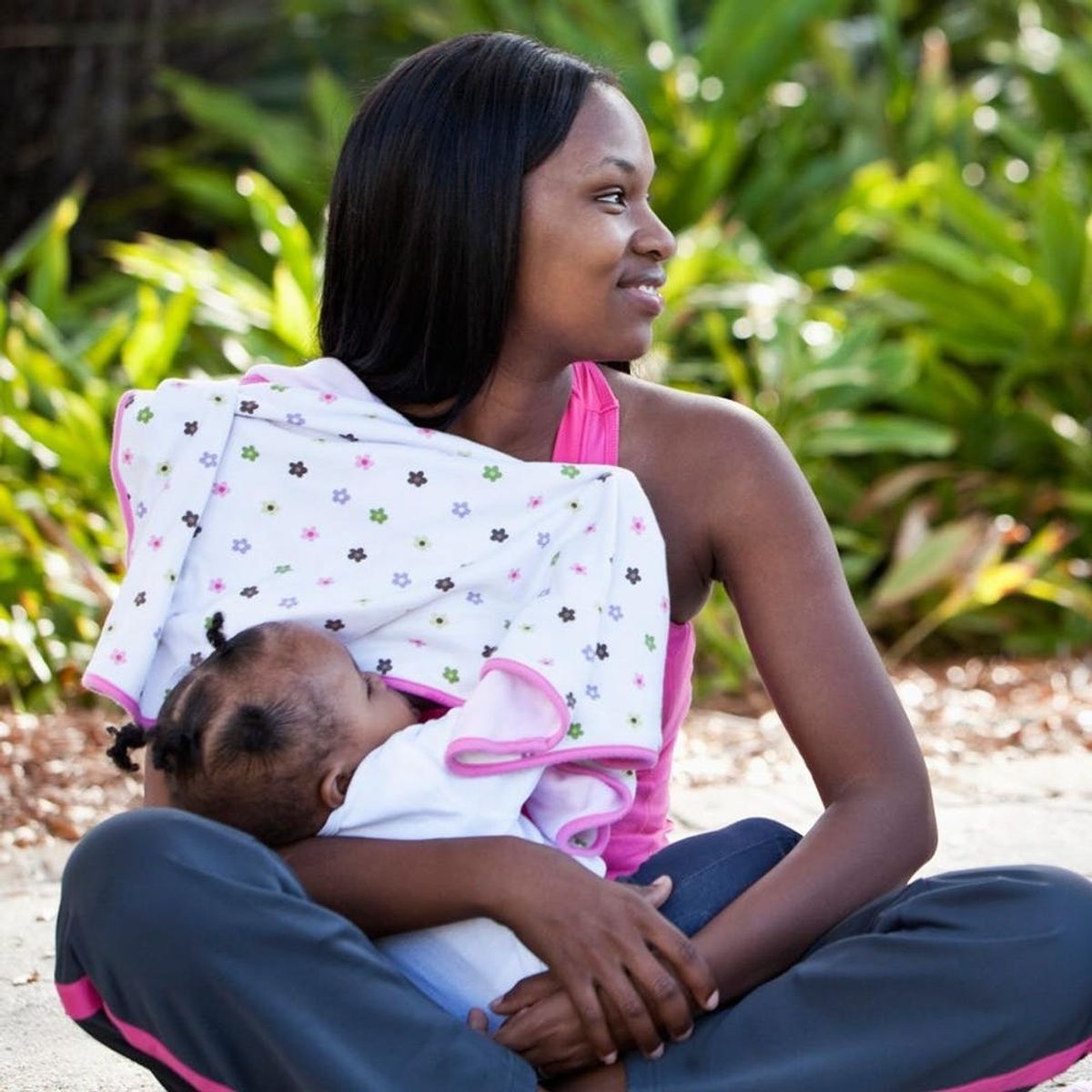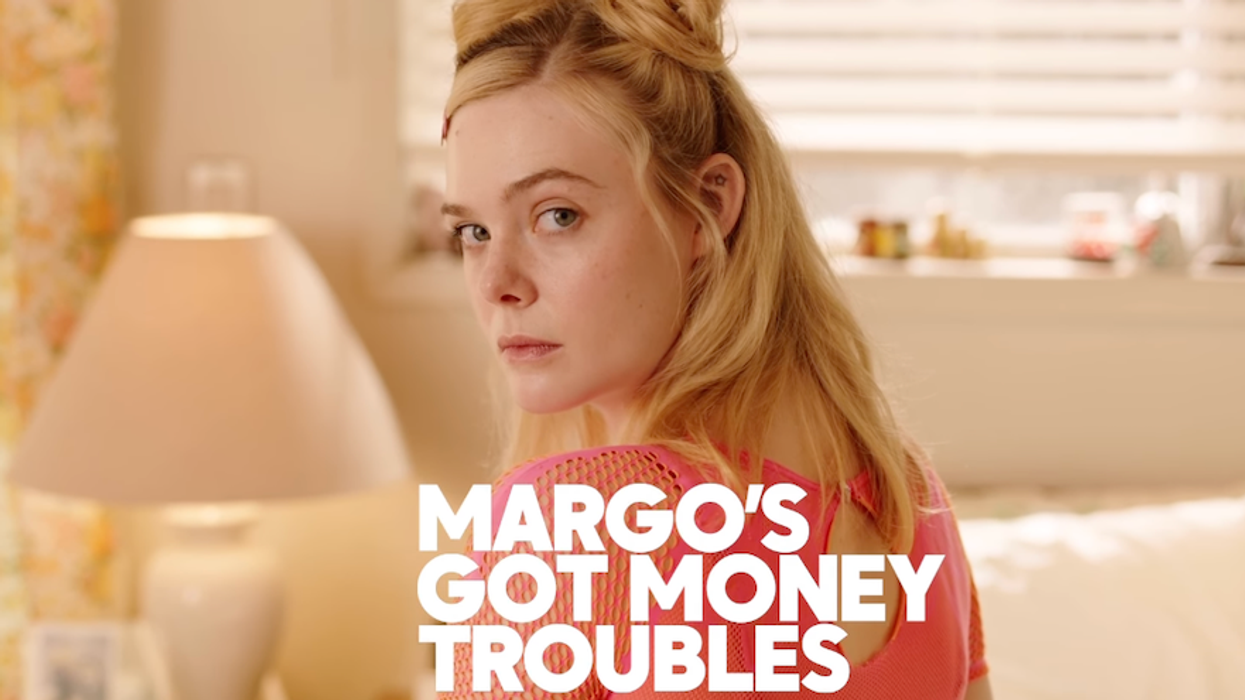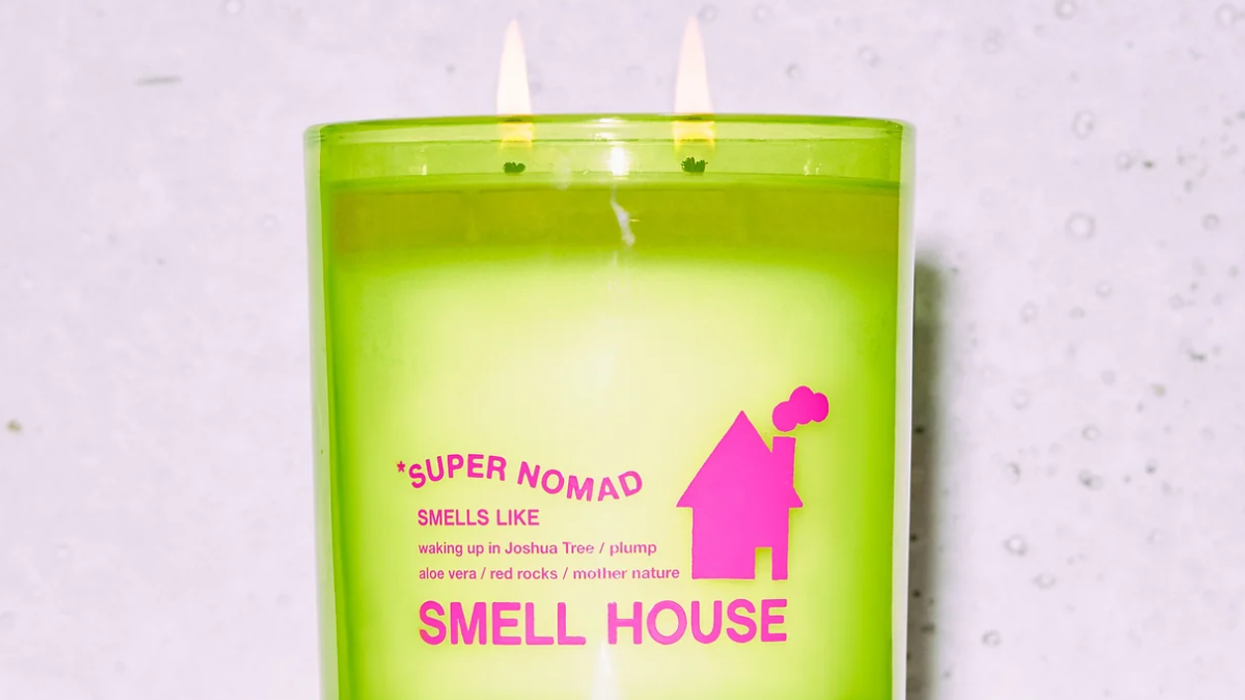Women helping women.
This Is the Simple Reason Why Millennials Breastfeed More Than Any Previous Generation

Breastfeeding is sometimes a sensitive topic. Women are shamed or otherwise discouraged from breastfeeding in public, or even from breastfeeding at all. Others find that they aren’t getting their breastfeeding support needs met by healthcare providers and turning to social media for guidance.
Online support might be especially important to Millennial moms, who breastfeed at higher rates than recent generations and are big-time social media users.

While other generations relied more on formula for feeding babies, Millennials are going for the boob. According to the CDC, 77 percent of babies started breastfeeding in 2010, compared to a dismally low 24 percent of moms who started breastfeeding their babies in 1971. While a huge proportion of that growth can be credited to breastfeeding promotion programs like ones led by WIC in the US, the role of social media in helping Millennial moms reach out to others for advice can’t be underestimated for its part.
For new parents who have the means, lactation experts and doulas are available long after the birth is over and a family has gone home from the hospital. Experts can come to the home or meet with parents in classes in order to discuss the benefits of breastfeeding, help troubleshoot any issues, and generally answer questions and provide support. But for new parents who don’t have the cash or time to pursue private help, social media has proven to be a valuable resource.
According to a 2015 report from the American Public Health Association, nearly nine in 10 (86.7 percent) moms who took an online survey used the internet to find information about breastfeeding. Further, moms with a low milk supply who looked for information about breastfeeding online were found to be 10 percent more likely to breastfeed at two months after birth than moms with low milk supplies who didn’t.
There are thousands of breastfeeding support groups on Facebook, some with massive membership, where moms can ask questions about breastfeeding, share advice, and talk about challenges and successes. Mom-centric websites, such as CafeMom, also have groups for discussions about breastfeeding.
Millennial mom Katherine tells Brit + Co that while she was breastfeeding, she reached out on her personal Facebook page a few times to ask specific questions about breastfeeding. She’s not a big fan of online mom communities, she tells us, but says she was “amazed at the flood of support and information” other moms gave her. Katherine says that the mom friends she has in person wouldn’t be likely to open up about breastfeeding, so she wouldn’t have been able to get personalized, real-time advice without the support of her online network.
Social media can be an especially helpful tool for Black moms, who statistically receive much less hospital support for lactation than white mothers. According to a 2011 report from the CDC, hospitals serving communities where the zip code has more than 12.2 percent African Americans are much less likely to meet five of 10 recognized steps necessary for “successful breastfeeding” created by the World Health Organization/United Nations Children’s Fund.

Dr. Ifeyinwa Asiodu, who is an assistant professor at the University of California-San Francisco, told the New York Times that breastfeeding support is especially important for African American families because the community is “is disproportionately impacted by prematurity, low birth weight, and infant mortality.”
Asiodu added, “While breast-feeding cannot prevent prematurity or low birth weight, it has strong potential to mitigate poor birth outcomes and prevent infant mortality.” Asiodu is researching the ways that social media is being used to provide support that isn’t being offered in hospitals, or required by policy.
Noting the discrepancies in hospital care for Black babies pertaining to breastfeeding, Dr. Asiodu noticed during her researching on breastfeeding that many Black women were getting the information they needed from social media. “It highlighted that the way in which people are getting information is changing,” she told a UC-San Francisco science blog.
According to the UC blog post, three activists began using social media to talk about breastfeeding among Black moms. The group worked to make the final week of National Breastfeeding Month (which is this month!) Black Breastfeeding Week, and also started a viral hashtag: #lifteverybaby, which celebrates Black babies. The blog further notes the work of two groups, Black Women Do Breastfeed and National Association of Professional and Peer Lactation Supporters of Color who use their social media platforms to share affirming images and important information about breastfeeding to Black women and women of color.
As Millennial women breastfeed in higher numbers, but don’t necessarily have the medical or at-home support they need for breastfeeding, it seems that good old Facebook is really coming through to fill the gaps. Whether through groups or directly on personal profiles, moms are finding ways to support one another during a complicated process.
What do you think of the ways social media helps mom with breastfeeding? Tell us on Twitter @BritandCo.
(Photos via Getty)


















